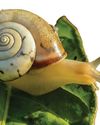
He was eleven years old. His father decided it was time to perform the thread ceremony, customary as it was for Hindu boys of his caste to start wearing the sacred thread. The boy, however, refused. He told his father that people should be identified and known by what they do or did not do and by their distinctive qualities and not by a thread.
The young boy was Nanak. Born to Mata Tripta and Kalyan Chand Das in the town of Nankana, about 40 miles from Lahore (in the undivided India) in 1469, Nanak showed signs of depth in thinking and conduct and a very different bent of mind from a young age. So, he was often at the receiving end of his father’s ire for something or the other. Whenever his father asked him to take cattle for grazing, Nanak would slip into deep meditative trances and get into trouble when the cattle wandered into the fields and ate up the crops of the neighbours!
The constant complaints from the neighbours would upset his father who scolded Nanak severely for what he thought was sheer laziness. Nanak was very fond of his elder sister Nanaki. After her marriage (Nanak was only six years old), he went to live with her and her husband in Sultanpur.
Nanak studied Hinduism and Islam extensively and the argumentative streak in him led him to frequent debates with both Hindu and Muslim sages, and the common folks. He strongly believed that it was wrong to focus on external actions like pilgrimages and penances; and that what really mattered was one’s effort to bring about internal changes in him/her.
He felt that people should be made to realise the true nature of God, blinded and obsessed as they were with only the superficial. He also believed that the ways to attain spiritual growth were meditation and music. He was convinced, and wanted also others to realise, that the divine streak was present in every human being.
This story is from the {{IssueName}} edition of {{MagazineName}}.
Start your 7-day Magzter GOLD free trial to access thousands of curated premium stories, and 9,000+ magazines and newspapers.
Already a subscriber ? Sign In
This story is from the {{IssueName}} edition of {{MagazineName}}.
Start your 7-day Magzter GOLD free trial to access thousands of curated premium stories, and 9,000+ magazines and newspapers.
Already a subscriber? Sign In

STICKING OUT YOUR NECK!
Maybe it's having the twins, my grandsons from New York, back home again, that reminded me of a conversation I had with them a couple of monsoons ago: \"What's that?\" asked one of them pointing to a huge shell on the ground.

Hippos can get airborne while running fast
Hippos weigh up to two tonnes, but these bulky creatures can go airborne for a period of time.

Tree bark plays a vital role in removing methane from the atmosphere
Trees are known for removing carbon dioxide from the atmosphere, thus benefiting the climate. New research shows that they offer one more benefit.

Lunar caves could shelter astronauts on the moon
Scientists have found an underground cave on the moon not far from where Neil Armstrong and Buzz Aldrin landed 55 years ago.

Manasi Joshi
The Para-Badminton World Champion

International Day of Peace
In Search of Non-violence and Cease-fire

Non-Violent Communication
How to cope with conflict situations

FR ALOYSIUS G. REGO
A short-statured bearded figure glancing through a pair of spectacles, cane in hand, and head swinging with every step, was the most feared figure in the galleries of our school, St. Joseph's Collegiate, Allahabad.

The Architects of the Future
As we celebrate Teachers' Day on 5 September, students from St Charles School, Santacruz East, Mumbai, have come together to share their thoughts and perspectives on the challenges that teachers face in today's rapidly-changing educational landscape.

JUNG & KOOK
With music, stories and news of K-pop all over the place, on Instagram, Twitter, Thread and other social media platforms, and dozens of boy and girl bands emerging from South Korea, believe me when I say that K-pop is irresistible.